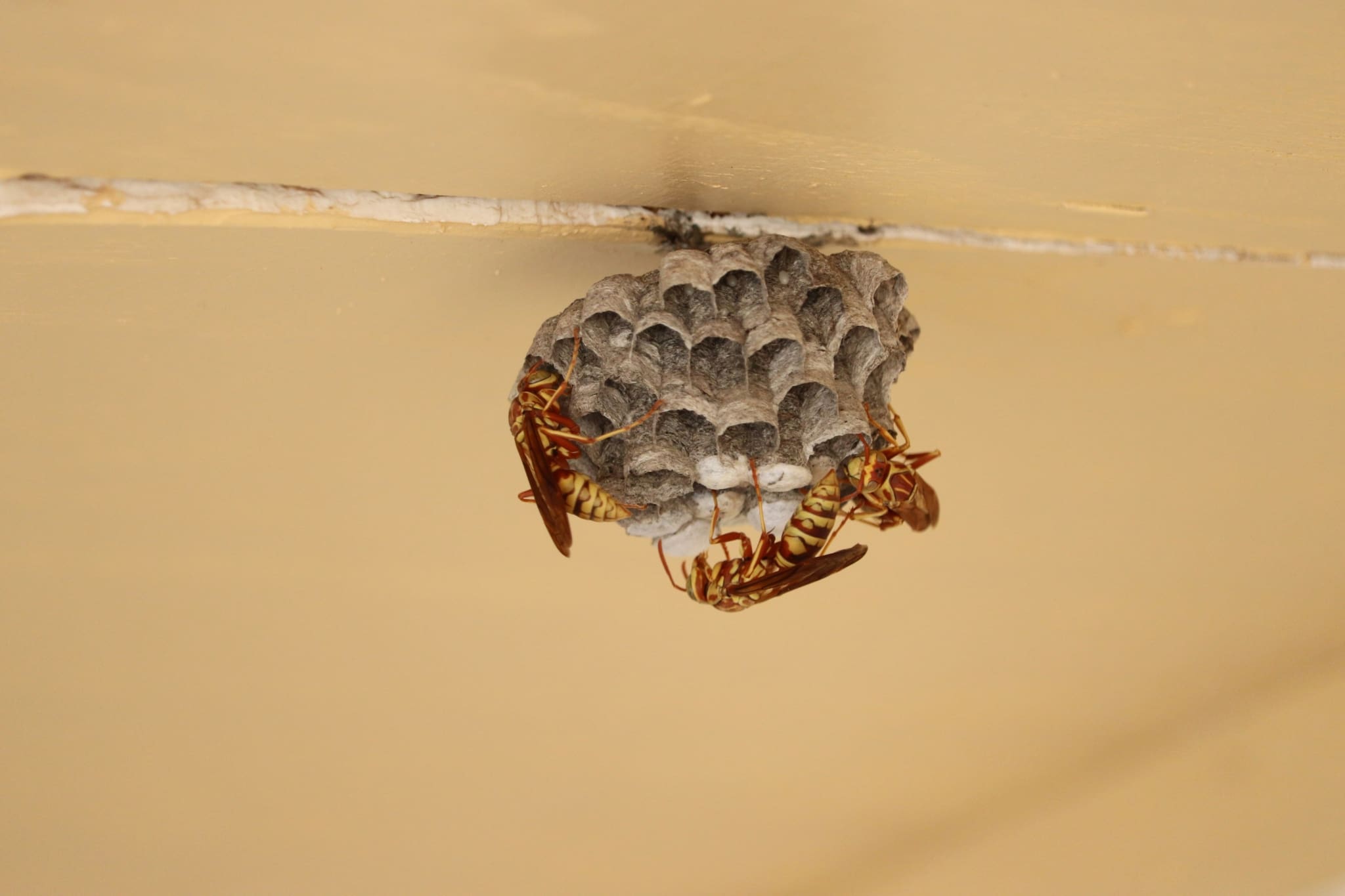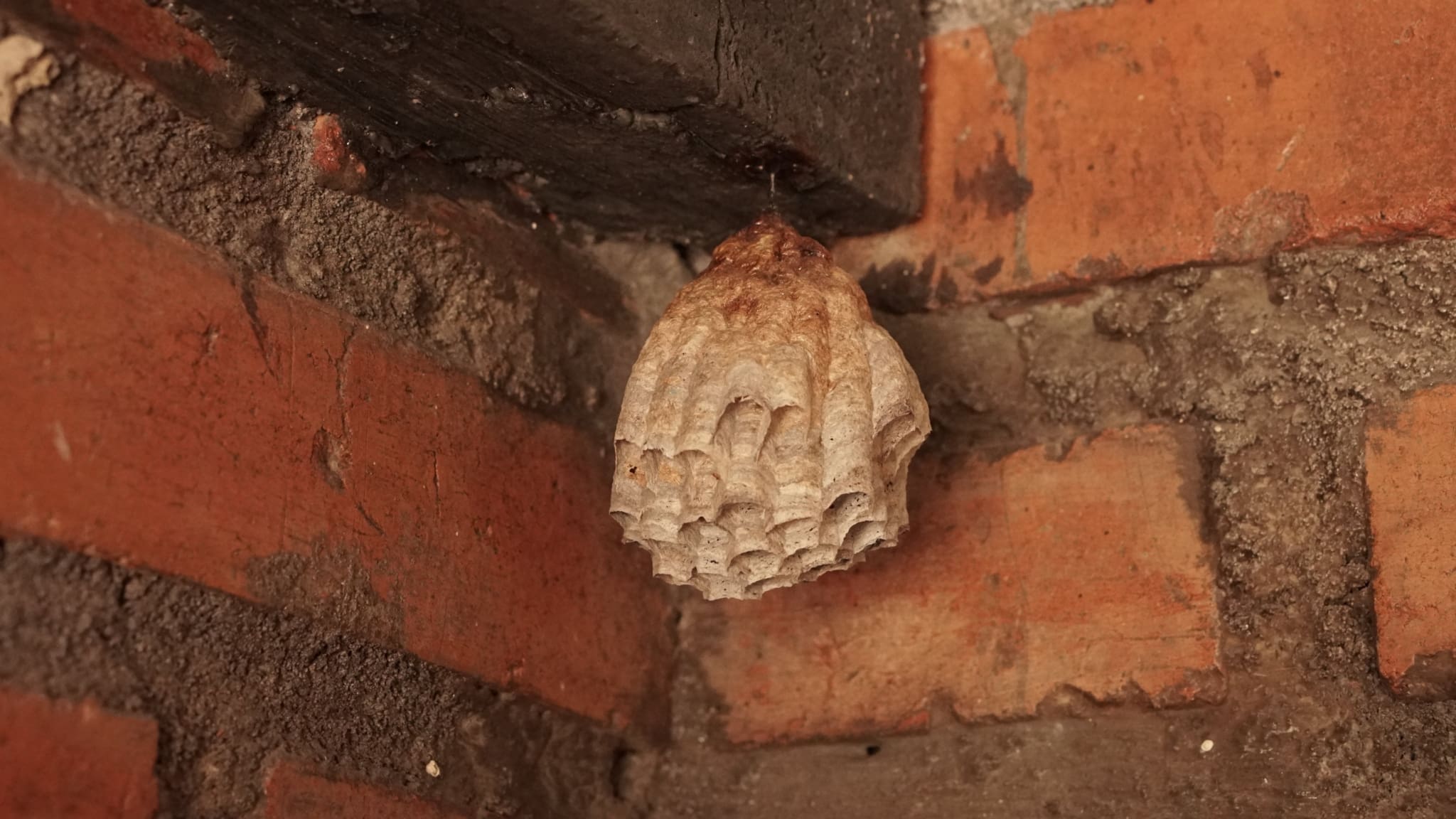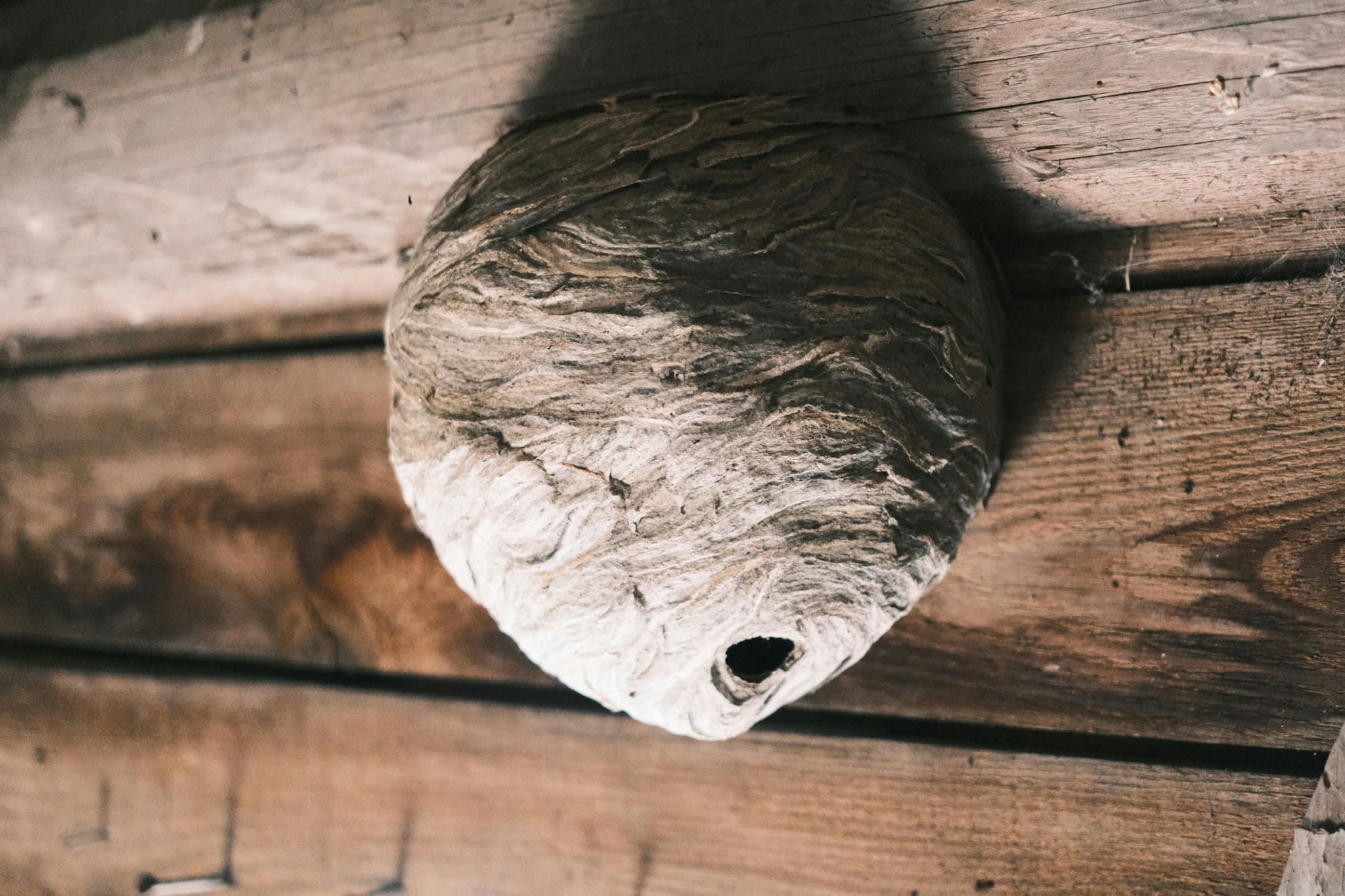A Guide On How To Get Rid of Wasp Nests Safely
There is no escape to encountering wasps in the Pacific Northwest. Washington and Oregon are home to thousands of flying insects which play vital roles in our ecosystems. However, their presence can pose a threat to humans, especially if they build nests close to our homes.
Dealing with a wasp nest can be an annoying and potentially dangerous task. Wasps are known for their aggressive nature, especially when their nest is disturbed. It’s crucial to approach getting rid of wasp nests with caution.
Not sure where to start? Read our tips on how to get rid of wasp nests safely and effectively. We’ll also discuss how to prevent wasps from building nests on your property in the first place.
Understanding Wasps and Their Nests
Most social wasps such as paper wasps, yellowjackets, and bald-faced hornets live in colonies. The number of wasps in each colony varies based on the wasp species and time of year.
Are wasps dangerous? The short answer is yes – they can be. When wasps feel threatened, they will sting. The likelihood of being stung by a wasp is high when you are interfering with their nest. Some wasps like yellowjackets become more aggressive at certain times of year depending on when the queen bee is reproducing. This typically occurs at the end of the season before the fall. Wasps can sting multiple times, and for those with allergies, a sting can be life-threatening. If you have a known allergy to stinging insects, ensure you are knowledgeable about how to avoid and deal with the pests if they sting.
Common Types of Wasps
Although their size is similar to the yellowjacket, paper wasps are identified by their long, slender body and long legs. Paper wasps are typically less aggressive than yellowjackets and hornets.
Paper wasps create umbrella-shaped nests under eaves, decks, and in trees. These nests are about the size of a baseball which is small compared to yellowjacket and hornet nests. A paper wasp colony is small ranging from 25 to 100 wasps.
Yellow jackets are identified by their shiny black and yellow striped body. Yellowjackets build new colonies and nests annually in the Pacific Northwest.
Their colonies can grow to be up to 4,000-10,000 yellowjackets. You will typically find these nests in the ground or wall cavities of a house or deck. This form of Wasp is extremely aggressive and can be stirred to action with very little provocation.
There are two types of hornets typically found in the PNW. A bald-faced hornet is essentially a giant wasp. Bald-faced hornets are known to have black and white bodies. They are behaviorally similar to a wasp but are known to be less aggressive than wasps and yellowjackets. European hornets may also be found in the Pacific Northwest.
Hornets are known to create large, enclosed nests in trees or in building exteriors. Hornet colonies are smaller than the other pests mentioned with only about 100-500 hornets per colony.
Preventing Wasps Nests
Prevention is the most effective way to keep wasps away. Here are some effective strategies to prevent wasps from nesting around your house:
- Regular Inspection: Regularly inspect your property for early signs of wasp activity, especially during the spring and early summer when wasps start to build nests.
- Seal entry points in walls and corners of the roof to prevent wasps from building nests inside the structure.
- Remove Food Sources: Keep food, especially sugary drinks and meats, covered when outdoors. Clean up spills and dispose of garbage promptly. If you utilize outdoor garbage bins, ensure they are tightly sealed.
- Maintain Your Yard: Trim trees and bushes, and remove fallen fruit that can attract wasps.
- Maintain Your Deck & Outdoor Structures: Ensure that all roofs and corners of outdoor structures are cleared of debris.
- Wasp Traps may be helpful if properly placed around areas of high activity.
How to Get Rid of a Wasps Nest Safely
Wasps are habitual creatures, if their nests are knocked down, they’ll get to work building it back up. With safety in mind, effectively removing a wasp nest is crucial to ensure the pests do not return.
Here’s a step-by-step guide to doing it safely:
Step 1: Assess the Situation
- Identify the type of wasp: knowing whether you’re dealing with yellowjackets, paper wasps, or hornets can help determine the best removal method.
- Locate the nest: carefully observe the wasps’ flight patterns to find the nest’s exact location. Avoid getting too close.
Step 2: Gather Necessary Equipment
- Protective clothing: wear long sleeves, pants, gloves, and a hat.
- Solution: purchase the least-invasive and effective treatment to kill the wasps.
- Flashlight: Use a flashlight with a red filter to avoid agitating the wasps (they are less sensitive to red light).
Step 3: Plan the Removal
- Time it right: remove the nest at dusk or dawn when wasps are less active and are inside the nest.
- Be prepared: plan your escape route in case the wasps become aggressive.
Step 4: Remove the Nest
- Spray the nest: Stand a safe distance away and spray the nest thoroughly, aiming for the entrance. Follow the product instructions carefully.
- Observe: Wait for 24 hours and observe the nest for activity. If wasps are still present, repeat the spraying.
- Remove the nest: Once you’re sure the wasps are dead, use a long stick or pole to knock down the nest. Place it in a sealed plastic bag and dispose of it in the trash.
It is important to prioritize safety when removing nests. The safest and most effective way to remove a wasp nest is to leave it to the professionals.
The Benefits of Hiring a Professional Pest Control Company
Hiring a professional pest control company to remove wasp nests is the safest way to go – especially if you are inexperienced in dealing with stinging insects. Not only do professionals know the safest way to remove nests, but they also know the most effective way to remove wasps and their nests from a property.
Benefits of Hiring a Professional:
Safety Gear: technicians have protective clothing that prevents harm during the removal process.
Tools & Solutions: a professional pest control company is equipped with the right tools to complete the job.
Experienced: they have done this time and time again, leaving them with experience with stinging insects.
Expertise: technicians are educated and have a fountain of knowledge guiding the method used to remove and prevent wasp infestations.
Prevention: a professional pest control company will not only remove the wasp nests – they will also recommend prevention methods to ensure the wasps do not return.
Guarantee: many pest control companies offer guarantees on their services, providing peace of mind that the wasps will not return.
Dealing with a wasp nest requires caution and the right approach. While preventative measures can significantly reduce the risk of wasps nesting around your home, sometimes professional help is necessary. Attempting to remove a wasp nest yourself can be dangerous, and the expertise of a professional pest control company ensures the job is done safely and effectively.
If you find a wasp nest on your property, consider the safety of yourself and your family. Contact a professional pest control company to handle the problem, allowing you to enjoy your outdoor spaces without the threat of wasps.
Pest Pros: Your Trusted Partner in Wasp Control
At Pest Pros, we specialize in safe and effective wasp nest removal. Our team of trained professionals will identify where these pests are hiding and employ safe wasp and nest treatment techniques.
Pest Pro’s process for removing wasps nests safely:
- Inspect and identify the type of wasp
- Least invasive pest treatment
- Additional pest services (if needed)
- Maintenance
Pest Pros take their job seriously. With years of experience and knowledge, our technicians will not only remove the wasp nests from your property completely – but will provide solutions on how to prevent wasps from building their nests back up. Our team uses techniques and products that are the least invasive to the current environment in which the nest resides.
Contact Pest Pros at (866) 686-3118 to learn more about how to get rid of wasp nests safely and receive a free quote today.





